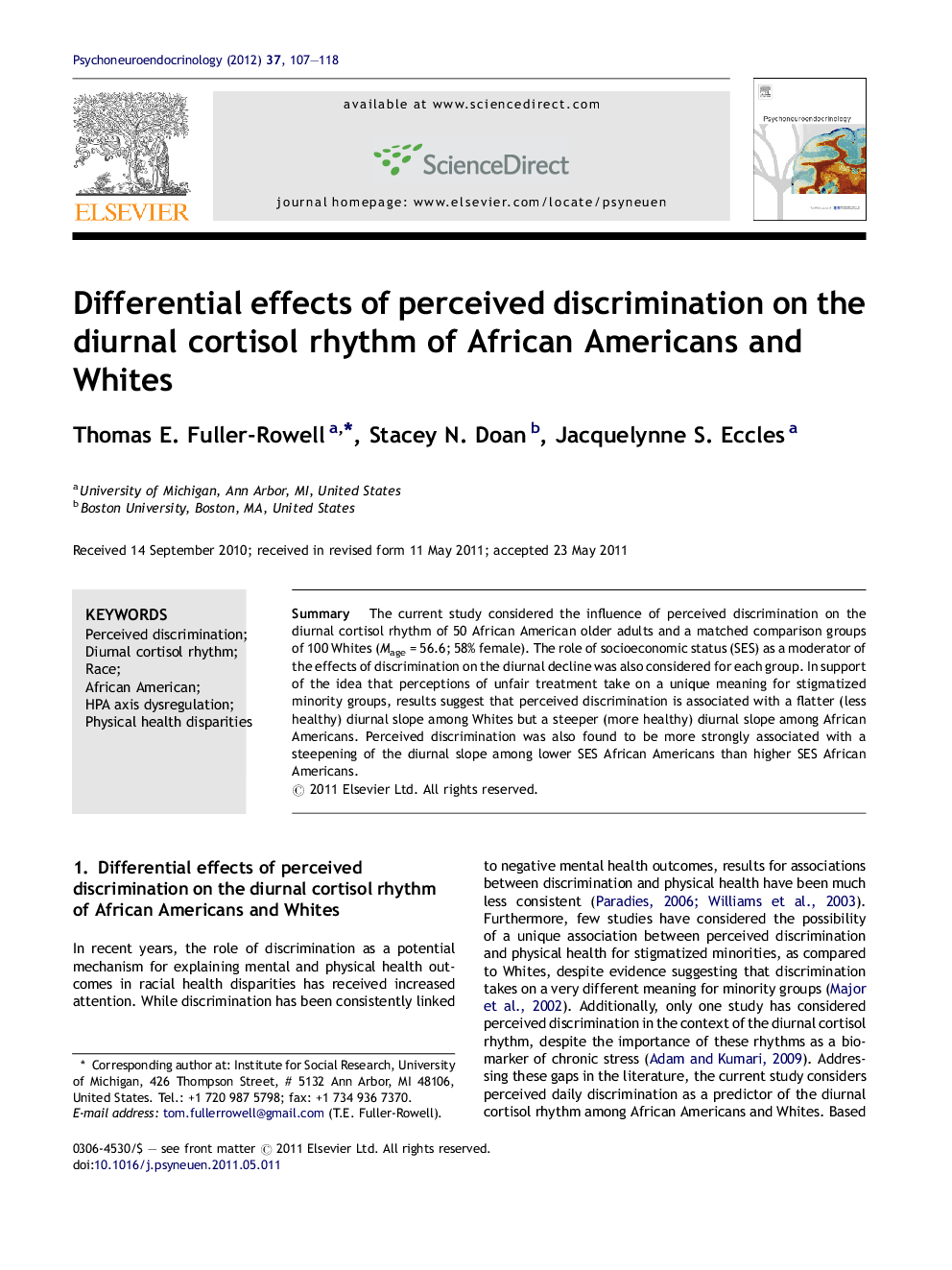| Article ID | Journal | Published Year | Pages | File Type |
|---|---|---|---|---|
| 10306215 | Psychoneuroendocrinology | 2012 | 12 Pages |
Abstract
The current study considered the influence of perceived discrimination on the diurnal cortisol rhythm of 50 African American older adults and a matched comparison groups of 100 Whites (Mage = 56.6; 58% female). The role of socioeconomic status (SES) as a moderator of the effects of discrimination on the diurnal decline was also considered for each group. In support of the idea that perceptions of unfair treatment take on a unique meaning for stigmatized minority groups, results suggest that perceived discrimination is associated with a flatter (less healthy) diurnal slope among Whites but a steeper (more healthy) diurnal slope among African Americans. Perceived discrimination was also found to be more strongly associated with a steepening of the diurnal slope among lower SES African Americans than higher SES African Americans.
Related Topics
Life Sciences
Biochemistry, Genetics and Molecular Biology
Endocrinology
Authors
Thomas E. Fuller-Rowell, Stacey N. Doan, Jacquelynne S. Eccles,
